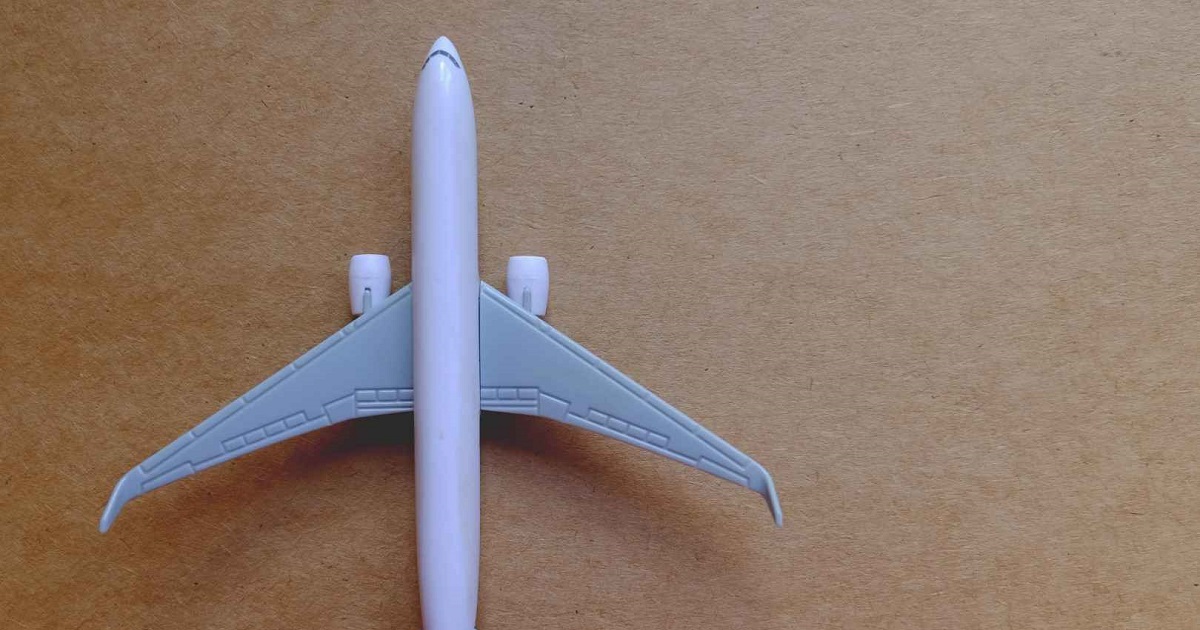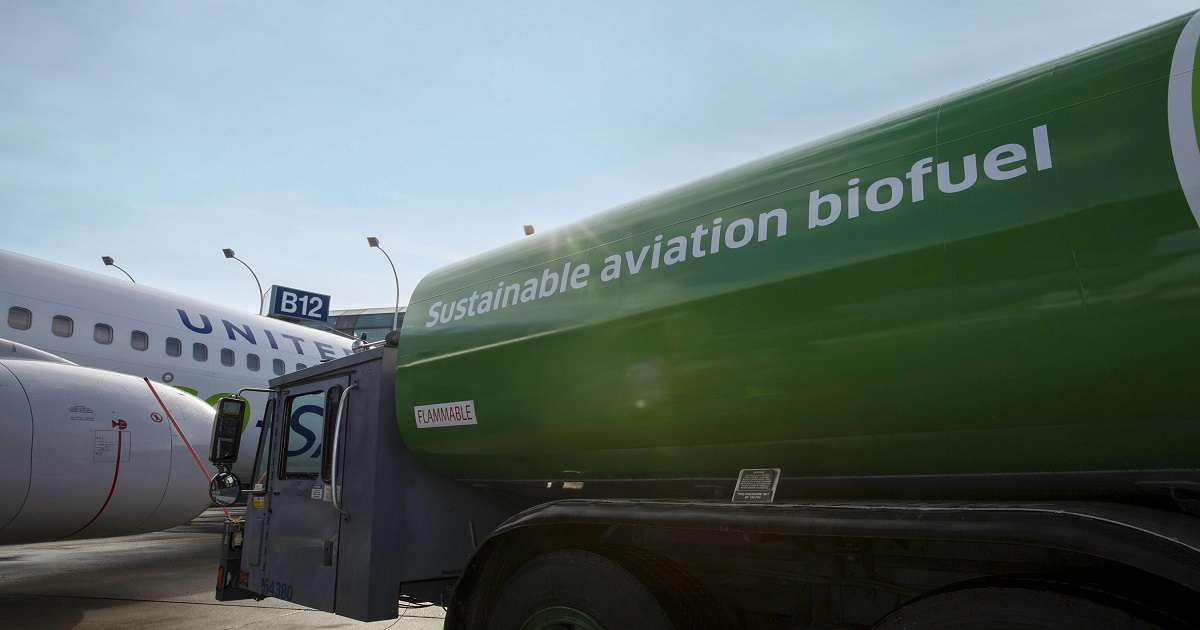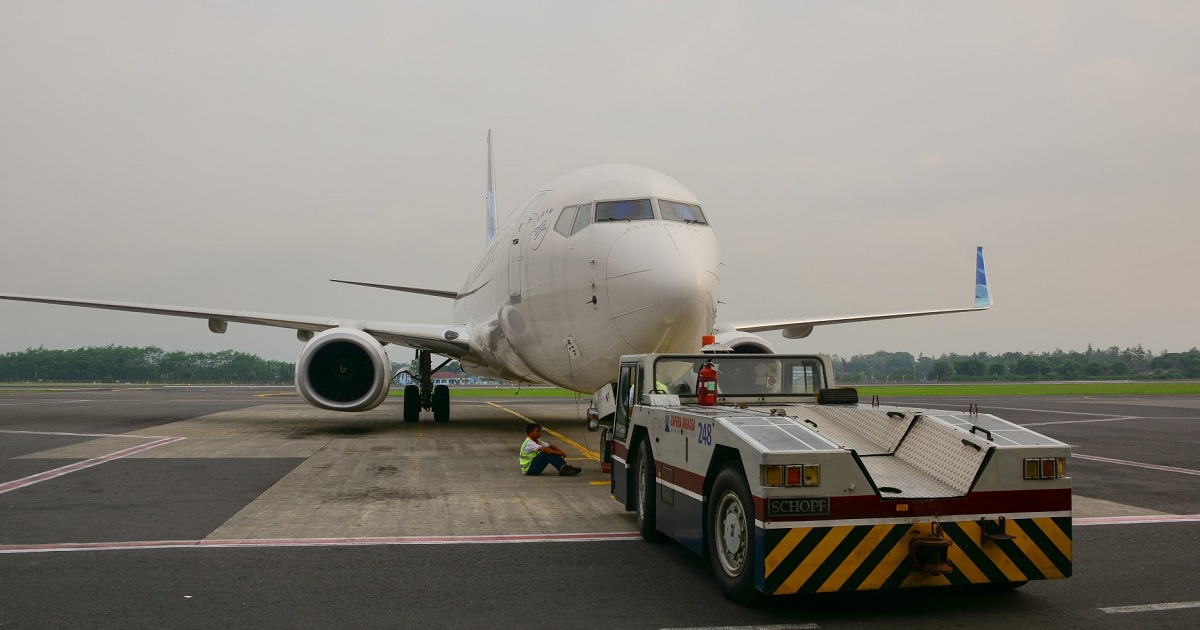
Business Aviation
Article | December 28, 2021
Although airlines only contribute to 2% of global emissions today, research indicates that this number could rise if air travel continues to grow. As such, airlines need to adapt and find new ways to become more sustainable. Successful implementation of eco-conscious strategies will see carriers achieve higher profits and maintain the trust of customers.
SimpliFlying has a long history of helping airlines craft the future of travel and we believe that addressing climate change is essential to rebuilding trust in the aviation industry.
Read More

Aviation Technology
Article | July 26, 2022
As 2021 is a few months away from its end and is the beginning of a new year, it is hopeful that it will bring more positiveness for airline businesses. But what the industry has ahead? How will the new landscape of technology strategies in airline businesses look?
Or say, what will be the platforms for novel technology strategies in the aviation industry in the future?
Let’s have a quick read in the next!
What Airline Technology Strategies Will Look Like?
As you know, the airline industry saw a lot of disruption in 2020. But the circumstance also paved the way for promising and powerful new technologies.
Airline businesses are now turning the tech trends to their advantage. In this way, they can get a handful of opportunities to streamline operations. They could do this because the landscape of technologies is reshaping aviation.
For example, IATA recently calculated that the airline's revenue worldwidewould be more than half of what it was in 2019. That means the industry will witness a massive change due to emerging tech stacks. Its rising importance is influencing market leaders to make more informed decisions today. This is why it is critical to imply technology strategies in your business.
Thus, the focus is on the clients' strategic choices and investments. It will now depend on the implications of technology strategies.
How will some of the applied proactive technologies in business processes look like in the new normal?
This blog groups some of the newer technologies for the new normal in aviation. Explore them and take inspiration from the potential of technologies to revive your business and drive growth.
5 Tech Strategies to Reshape Airline Industry
Machine Learning with AI
Before the pandemic, the airline industry displayed an exceptional commitment to the potential of AI. Like, you must have seen the adoption of chatbots to communicate and other ways to improve operations.
Now, the usage of AI is soared, and its application is more profitable than before. The platform analyses a faster deployment of millions of operational data.
Mechanization
Mechanization technology in the airline industry is gaining thrust. Due to the rapid developments and advancements, several airline businesses are implementing it. As tools are becoming smarter, businesses will soon have completely automated operations. Automation will ease all the workloads, reduce manual intervention and errors to a high accuracy rate.
Real-Time Information Technology
Real-time information technology is a significant technological aviation strategy. It has the potential of improving airlines’ operation efficiency with the help of customized software usage.
Your business can drive growth by implementing custom software applications. But, as you know, to deliver customized and personalized solutions, it is essential to understand clients’ expectations and preferences. So, how is this technology going to take you through it? Let’s understand in the following ways:
Personalized solution: Custom software applications are developed with the help of the updated information collected by knowing customer’s preferences. In this way, you can create personalized or customized solutions for your clients.
Technical Excellence: Having an expert development team across all application stages is a plus in your business. The cutting-edge tools will benefit from fulfilling clients’ demands
Higher business value realization: It's critical to properly align real-time information technology with your business processes. This will deliver solutions on time with the right approach to your client. This way, your business can generate higher value and build trust in long-term relationships with clients.
Analytics
Analytics is the most urgent technological need for airline businesses in the future. Aacquiringe accurate data, predicting losses, and evaluating clients’ needs will be the next transformational scenario in the airline industry.
Implementing this technology will allow airlines to streamline their operations ahead of time. It will also help to take realistic measures to bring down losses that occurred due to the pandemic.
Analytics are also effective in predicting and preparing for the results of business efforts. Data-backed analytics would provide insights to pinpoint geo-specific interventions to gain higher ROI.
Agility
The implementation of technology strategies has encouraged airline businesses to become agile. At the same time, some leading industry market players have now shifted their business to operate in agility. So, it's expected that this trend will continue beyond 2021.
The aviation industry caters to a vast array of products and services. It works to deliver seamless operations and services. The adaptation of agility requires multiple systems to interact and exchange data. So, with the growing rate of partnerships, agility is the need of the hour.
Today, in several airline businesses, teams work in separate locations. Being agile helps them to win adverse circumstances. It also builds the trust of audiences by keeping transparency in work and responding to queries faster.
With this, the emerging technology is also expected to help track the progress of smaller efforts and proactively handle the metrics for projects coming in. In addition, the technology ensures that you can constantly inspect functions and deliver quality products or services.
Lastly, since the budget is one of the top concerns of airline businesses, the development of agile technology strategies helps to keep a check on expenses. Therefore, by tracking the expenditure, it will be easier to plan future budgets adequately.
Frequently Asked Questions
What are other critical new technologies that will transform aviation?
According to IATA’s report, the aviation industry will witness a drastic transformation. Some important new technologies such as cybersecurity, 3D printing in manufacturing, robotics, and biometrics will enter in the future.
How has technology enhanced the aviation industry?
Technology has enhanced aviation in manufacturing. New techniques have created new aircraft with improved fuel consumption and reduced environmental impact. In terms of operation, automation and AI are the new takeovers in aviation.
Why is technological development important for aviation?
Technological development is important to improve the efficiency of airline operations. The need for better connectivity, enhanced travel experience, reduced fuel costs, budget alignment, control over expenses has urged technology to step in.
{
"@context": "https://schema.org",
"@type": "FAQPage",
"mainEntity": [{
"@type": "Question",
"name": "What are other critical new technologies that will transform aviation?",
"acceptedAnswer": {
"@type": "Answer",
"text": "According to IATA’s report, the aviation industry will witness a drastic transformation. Some important new technologies such as cybersecurity, 3D printing in manufacturing, robotics, and biometrics will enter in the future."
}
},{
"@type": "Question",
"name": "How has technology enhanced the aviation industry?",
"acceptedAnswer": {
"@type": "Answer",
"text": "Technology has enhanced aviation in manufacturing. New techniques have created new aircraft with improved fuel consumption and reduced environmental impact. In terms of operation, automation and AI are the new takeovers in aviation."
}
},{
"@type": "Question",
"name": "Why is technological development important for aviation?",
"acceptedAnswer": {
"@type": "Answer",
"text": "Technological development is important to improve the efficiency of airline operations. The need for better connectivity, enhanced travel experience, reduced fuel costs, budget alignment, control over expenses has urged technology to step in."
}
}]
}
Read More

Business Aviation
Article | January 28, 2022
Can the aviation industry have a net zero-carbon emissions? Can technology assist in achieving net-zero emissions?
Presently, customers are taking more flights than ever as the industry is set to grow post-pandemic effects. Data from IATA shows that the UK aviation industry alone ejected thirty-seven million tonnes of CO2 into the atmosphere in 2020. That’s an average of 9% more in tonnes of emission the industry recorded in 2018.
The warnings are transparent. In the latest reports of Intergovernmental Panel on Climate Change (IPCC), the effects of global warming are escalating.
“We know the challenges of climate change the world is facing. It has only continued to intensify,”
-Nicholas Calio, president and CEO of Airlines for America
Airlines are subsequently embracing their actions towards the recovery of their business. There is a need to take even braver, more momentous steps to address this challenge.
Airlines have been focused on carbon offset programs for years. It has previously invested in projects and organizations that assist in reducing the impact of CO2 emissions.
In March 2021, the U.S. airline industry announced that its market leaders are committed to achieving zero carbon emissions by 2050.
The aviation industry is currently rising at between 4% and 5% a year. And the number of passengers will double every 15-20 years. How will the industry let fly with zero emissions? Certain plans strongly focus on the increasing use of sustainable aviation fuel and jet fuel. These fuels are produced from sources such as plant oils, municipal waste, agricultural residue, fossil fuels, and other interim steps.
The blog accumulates some of the best ways that aviation has unveiled on the grounds of zero carbon emissions.
Escalating the Use of Alternative Fuel
The escalating use of alternative fuels is perhaps the most significant proposed carbon reduction initiative for sustainable aviation fuel (SAF) usage. Sustainable fuel is going to be created from plant or animal material. One of the examples is waste oil.
It is studied that SAF has the potential to cut life-cycle emissions from aviation by 80%. It can be blended with conventional jet fuel without making major changes in aircraft designs. But, as technology is concerned with SAF usage, it can be eight times more expensive than conventional jet fuel. SAF currently values less than 0.1% of the almost 300 million tonnes of fuel that commercial airlines use every day.
some companies are taking regulatory incentives in joint efforts with aviation after looking at the costs and ensuring that more SAF is used in the future. Let’s see which corporate companies are setting commendable aviation-related commitments.
Microsoft partnered with Alaska Airlines. Together, they are working to cover CO2 emissions to make their employees’ travel safe by introducing SAF credits.
FedEx has committed to purchase 13 million liters of sustainable aviation fuel from Red Rock Biofuel. It is a part of their long-term net-zero emission strategy.
Express GBT created an alliance to help in increasing supply SAF to under carbon reduction initiative and become zero carbon-emitting by 2050.
Industry-Wide Efforts
The path to climate recovery with zero airline emissions will require a collective effort from all industries. This also includes governments. They must take responsibility for the impact of certain activities, products, and policies have on the environment. The production of fossil fuels is one of them. So, the aviation industry must reduce its dependency on fossil fuels for air travel.
Industries such as energy, road transport, infrastructure, manufacturing, and finance are being collectively responsible for creating a risk-free airline emission. For example, policies of energy transition must include a change in the production plan. Road transport efforts should be advanced by designing electric vehicles. Manufacturers should bring in new technology to support the creation of lightweight engines and aircraft parts. All of them should join hands for a sustainable future for aviation.
The Role of Government Investments
Government bodies play a crucial role in heading up carbon reduction initiatives. The initiative will have solutions such as new aircraft technology and more efficient infrastructure and operations. It also includes the development of zero-carbon energy sources like hydrogen and electric power generation.
According to IATA, 1.8 gigatons of carbon will be required to sustain the aviation industry in 2050. The prediction can achieve 65% of carbon for sustainable aviation fuels.
What are other solutions in demand to commit to addressing a zero-emission environment? It includes:
Fuel-producing companies are to bring large-scale, cost-competitive sustainable aviation fuels (SAF) to the market.
Governments and air navigation service providers (ANSPs) eliminate inadequacies in air traffic management and airspace infrastructure.
Aircraft and engine manufacturers produce more efficient aircraft engines and propulsion technologies.
Airport operators provide the required infrastructure to supply cost-effective SAF.
Airline Firms Decarbonizing Aviation
Presently, aviation is driving towards a new chapter of growth. And the pillars of growth are the firms that are continuously making efforts to make aviation a risk-free industry.
Let’s see how aviation firms are contributing to making a zero-carbon emission sky for safe air travel for the future.
Delta Airlines
Delta and Aviation Climate Taskforce are initiating technological innovation and accelerating the research and development of emerging technologies. Emerging technologies refer to reducing CO2 footprint production. They are focusing on their approach towards medium-term solutions, near-term solutions and long terms solutions.
The mid-term solutions include synthetic fuel. The near-term solutions focus on emerging bio-based Sustainable Aviation Fuel (SAF) pathways. And long-term solutions include hydrogen technologies. ACT will aim to support the advancement of these technologies through two crucial pillars:
An Innovation Network
A Collaboration Forum
JetBlue
JetBlue went carbon neutral for all its flights. It went through carbon offset programs in partnership with the CarbonFund.org Foundation. The investment included solar, wind, and hydrogen-energy project initiatives.
Apart from this, JetBlue also invested in hundreds of global carbon offset programs to support renewable energy efforts.
“views carbon initiative as a platform for other industry-wide environmental improvements that support lower emissions.”
-JetBlue
The best part is that JetBlue also invested in sustainable aviation fuel on flights. They are currently operating from San Francisco International Airport.
American Airlines
American Airlines changed its strategy of using traditional jet fuel. The airline has committed to purchase 9 million gallons of SAF to lower CO2 emissions in the next three years.
Southwest Airlines
On Earth Day 2021, Southwest Airlines announced it would continue to support the U.S. Department of Energy’s National Renewable Energy Laboratory (NREL). NREL works to develop cost-effective low-carbon aviation fuels that are generated from waste.
The airline SAF will play a vital role in getting the atmosphere carbon neutral and will be able to achieve carbon neutrality by 2050. On this, NREL estimates that wet waste typically produces enough energy to provide about 20% of jet fuel consumption.
How Will the Industry Embrace Greener Air Travel Once It Returns to the Sky?
There is a buzz that travelers are now becoming more conscious of the environment. Inspired by Greta Thunberg, a Swedish climate change activist after the pandemic, a growing wave of eco-conscious travelers are choosing to fly with more environmentally friendly airlines. They are also opting for other means of transportation.
As the aviation industry accounts for 2.5 percent of global carbon emissions, travelers now want to be associated with greater environmental awareness. They are taking some essential steps such as:
Asking whether a flight is necessary for travel
Booking a flight that travels nonstop
Keeping a check on airlines that promote carbon reduction goals
On the other hand, airline companies today are opting to monitor themselves. They are doing it within the parameters of emissions, manufacturing, and embracing technological aspects.
Frequently Asked Questions
How can air travel become more environmentally friendly?
You can follow some travel tips such as:
Opt for a direct destination flight
Find alternatives to travel other than flight (if not necessary)
Carry lesser or lighter luggage
Try to produce lesser waste
Choose a sustainable flight
How are airline firms reducing emissions from their flights?
Airline firms are continuously working towards reducing emissions in several ways. They are:
By retiring old aircraft
By updating air traffic routes to reduce fuel consumption
By investing in newer technologies in the manufacturing process and other fields
By participating in electricity generation and other sources of fuel generation
Which are the most eco-friendly airlines?
The most eco-friendly airlines are:
Air France
United Airlines
JetBlue
Delta Airlines
Virgin Airlines
Alaska Airlines
Read More

Business Aviation
Article | December 16, 2021
While countries continue to implement new Omicron-related restrictions in response to the rising number of cases globally, a majority of these are in the form of enhanced COVID testing requirements – not travel bans. As a result, travel demand for popular peak-season destinations has remained strong, and over the past few days we’ve seen a BIG INFLUX in bookings as news trickles out that Omicron may be a less severe variant.
If this continues, we expect to see another prolonged booking surge, so plan accordingly and get your requests in ASAP for best options – especially parking and hotels. While the new U.S. 24-hr testing requirement for return travel is tight, it’s not a big deal if you are prepared with an approved at-home testing kit (like Abbott BinaxNow, Qured, Ellume, etc.). Alternatively, our Trip Support Teams can help you identify testing providers abroad.
Looking ahead to your missions in 2022, you may want to consider On-Aircraft COVID Testing for your N-registered aircraft. It’ll make international COVID testing MUCH easier on you and your passengers when at-home testing kits aren’t an option.
Read More